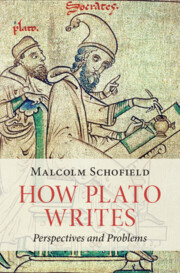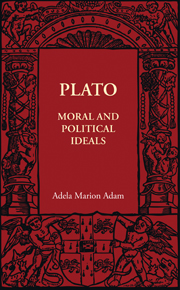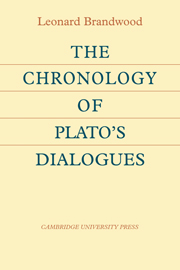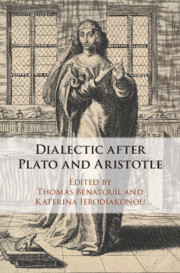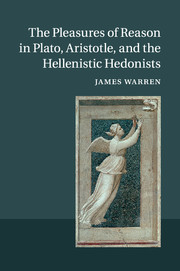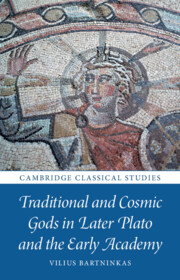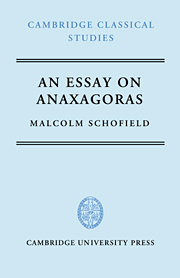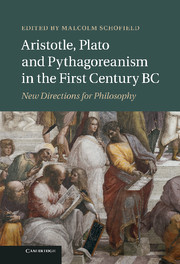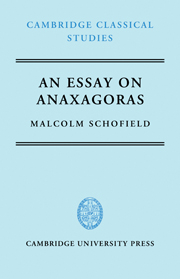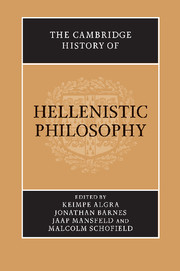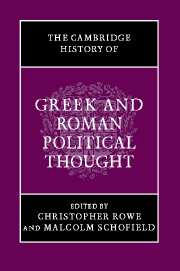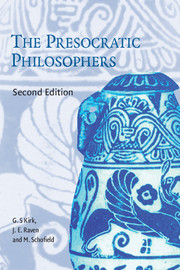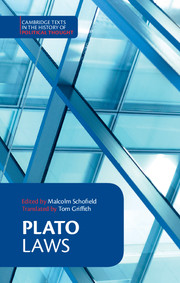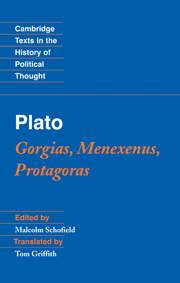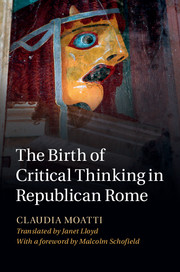How Plato Writes
Perspectives and Problems
£30.00
- Author: Malcolm Schofield, University of Cambridge
- Date Published: August 2023
- availability: In stock
- format: Hardback
- isbn: 9781108483087
£
30.00
Hardback
Other available formats:
eBook
Looking for an inspection copy?
This title is not currently available on inspection
-
Plato is a philosophical writer of unusual and ingenious versatility. His works engage in argument but are also full of allegory, imagery, myth, paradox and intertextuality. He astutely characterises the participants whom he portrays in conversation. Sometimes he composes fictive dialogues in dramatic form while at other times he does so as narratives. In this book, world-renowned scholar Malcolm Schofield illustrates the variety of the literary resources that Plato deploys to achieve his philosophical purposes. He draws key passages for discussion particularly, but not only, from Republic and the less well-known Laws and also shows how reconstructing the original historical context of a dialogue and of its assumed readership is essential to understanding Plato's approach. The book will open the eyes of readers of all levels of expertise to Plato's masterly ability as a writer and how an understanding of this is crucial if we are to appreciate his philosophy.
Read more- Provides a distinctive focus on Plato's versatility as a writer and thinker
- Sheds light on problematic philosophical issues in the interpretation of key passages in the dialogues
- Clearly and accessibly written for readers of all levels of expertise
Reviews & endorsements
'This is a very welcome volume by a very distinguished scholar. The topics include Plato's epistemology and metaphysics, but most of the chapters focus on Plato's ethics, political philosophy, and psychology. In reading the dialogues, Schofield deftly combines literary and historical analysis with analytical rigor and such breadth is rare in Plato interpretation. Any student of Plato will gain much by reading and thinking deeply about the this book.' Chris Bobonich, Stanford University
See more reviews'A fascinating intervention on Plato by one of his leading contemporary readers, How Plato Writes offers a nuanced and multifaceted exploration of key features of Plato's texts: image and argument, paradox, intertextuality and the literary staging of philosophical conversation. Schofield's probing analyses of thorny passages and interpretive problems are essential reading for experts yet accessible to a wide audience. The different chapters of the volume combine to form an interconnected and illuminating reflection on the challenging, puzzling and often playful nature of Plato's philosophical provocations.' Shaul Tor, King's College London
'The erudition and wisdom ... sparkle on every page.' Edith Hall, Times Literary Supplement
'… this is an impressive overview of key passages in Plato's work, which stimulates further thought. Overall, the interpretations are characterized by a very welcome, high level of context sensitivity, many intertextual references and, at the same time, a precise and analytical approach.' Abida Malik, Sehepunkte
Customer reviews
Not yet reviewed
Be the first to review
Review was not posted due to profanity
×Product details
- Date Published: August 2023
- format: Hardback
- isbn: 9781108483087
- length: 320 pages
- dimensions: 235 x 160 x 23 mm
- weight: 0.61kg
- availability: In stock
Table of Contents
Part I. Approaches to the Corpus:
1. Plato in his Time and Place
2. When and Why Did Plato Write Narrated Dialogues?
3. Against System: the Historical Plato in the Mid-Victorian Era
Part II. Argument and Dialogue Architecture:
4. Callicles' Return: Gorgias 509-22 Reconsidered
5. Likeness and Likenesses in the Parmenides
6. The Elusiveness of Cratylus in the Cratylus
Part III. Myth and Allegory in the Republic:
7. The Noble Lie
8. The Cave
Part IV. Projects, Paradoxes, and Literary Registers in the Laws:
9. Religion and Philosophy in the Laws
10. The Laws' Two Projects
11. Plato, Xenophon, and the laws of Lycurgus
12. Injury, Injustice, and the Involuntary in the Laws
13. Plato's Marionette
14. Paradoxes of Childhood and Play in Heraclitus and Plato.
Sorry, this resource is locked
Please register or sign in to request access. If you are having problems accessing these resources please email [email protected]
Register Sign in» Proceed
You are now leaving the Cambridge University Press website. Your eBook purchase and download will be completed by our partner www.ebooks.com. Please see the permission section of the www.ebooks.com catalogue page for details of the print & copy limits on our eBooks.
Continue ×Are you sure you want to delete your account?
This cannot be undone.
Thank you for your feedback which will help us improve our service.
If you requested a response, we will make sure to get back to you shortly.
×
